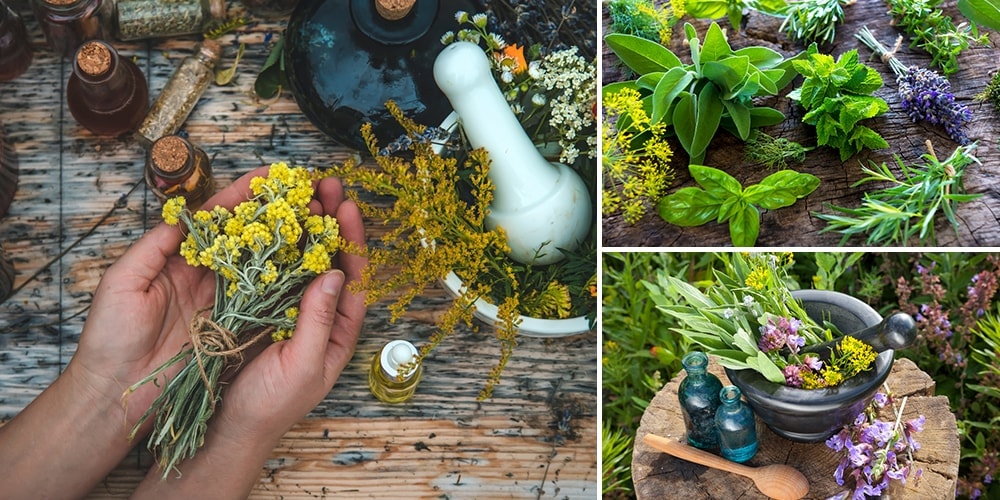
Herbs You Should Always Take Together
I always take my ginger tea with a splash of lemon and some honey. In my point of view, ginger tastes better with it, balancing the spiciness with the acidity and sweetness. Of course, secondary to it is realizing that they together may provide more health benefits.
Herbs do interact with each other when taken together. The right pair is likely to help you achieve better therapeutic benefits with the synergy of their compounds.
Some herbs are only as good when combined with a complementing herb. It helps improve their bioavailability to be better absorbed by the body and improve the therapeutic response. So, let’s find out the best herbal combinations!
Herbs You Should Take Together
Before taking herbal combos, it is essential to consider their safety first. Not all herbs are safe for taking together. Some mixtures may not be desirable and cause ill effects. Here you can learn more about the herbs you should never take together.
Turmeric and Black Pepper
Turmeric (Curcuma longa) is one of the most valuable herbs in homeopathic treatment. Turmeric is used for treating various diseases including idiopathic ones. Idiopathic diseases are those that result from unidentified causes.
Turmeric contains curcumin, an essential antioxidant that is not easily absorbed by the small intestine. However, according to studies, curcumin increases its bioavailability when combined with the compound piperine, an active component in black pepper.
Additionally, the curcumin in turmeric is fat-soluble. The body may not absorb it well if dissolved in any liquid. The best way of taking turmeric and black pepper is by dissolving it in oil like ghee or clarified butter, almond oil or coconut oil.
Lemon and Ginger
Lemon-ginger tea is a traditional herbal tonic used for a variety of health issues. Honey is often added, not just as a sweetener, but also to add a boost of therapeutic effect. The tea is best for respiratory issues and digestive problems. It is also good for boosting immunity and promoting weight loss.
Lemon and ginger are antioxidants that can purify the liver and remove harmful toxins in the body. Preparing the tea is as simple as boiling ginger in a cup of water for 5 minutes before adding the lemon and honey.
Ginkgo and Ginseng
Ginkgo biloba and Panax ginseng (Korean ginseng) are two of the most potent herbs that are most revered in Traditional Chinese Medicine (TCM). These medicinal plants have actions that are concentrated on the improvement of cognitive functions.
The combination of ginkgo and ginseng may aid in the improvement of memory which is backed by many scientific studies.
Dandelion and Nettle
Dandelion and nettle are two wild plants that are often labeled as weeds. But, the roots of these plants together in a tea are teeming with nutrients that may help treat anemia. They are abundant in iron and other essential nutrients needed for balancing the hormones and detoxifying the body.
Dandelion (Taraxacum officinale) may help improve the function of the kidneys and the liver and treat problems like hypertension and high cholesterol. Stinging nettle (Urtica dioica) is also an alterative herb that supports the kidney health and functions of the adrenal glands.
Safflower and Peach Kernel
Safflower (Carthamus tinctorius) is a prized spice that also has valuable medicinal benefits. It is highly effective against blood clots and problems with scanty menses.
Peach kernel, or the peeled pit of peach (Prunus persica), may help deal with issues that relate to blood circulation and liver fibrosis. It is also used as a traditional treatment in promoting menstrual flow in women.
In TCM, safflower and peach kernels are used to invigorate the blood flow. It cools and thins the blood to alleviate blood stasis that may result in other problems. However, this combination should be used with precaution, especially in people with blood problems. The peach kernel may also be toxic in large amounts.
Cloves and Rosemary
Cloves (Syzygium aromaticum) and rosemary (Rosmarinus officinalis) are synergistic herbs that are best taken as a combo. Studies reveal that their anti-inflammatory and anti-nociceptive (pain-blocking) properties are very effective in relieving pain. Cloves and rosemary together can ease the inflammatory pain associated with several diseases.
An infusion of clove-rosemary is also useful in promoting hair growth.
Lavender and Peppermint
Lavender and peppermint are synergistic aromatics that aid in promoting quality sleep. They are mostly used as essential oils for massage and aromatherapy. Lavender (Lavandula angustifolia) is a calming herb with a sweet scent that is scientifically proven to reduce anxiety and stress. Peppermint (Mentha piperita) is more like a mood booster that helps uplift the spirit.
Astragalus and Licorice
Astragalus (Astragalus membranaceus) and licorice (Glycyrrhiza glabra) are adaptogenic herbs that help maintain body balance. Astragalus is slightly warm while licorice is cool. When taken together, they tone the body’s vital energy or qi.
These synergistic herbs can boost the immune system, prevent colds and flu, treat digestive problems, promote blood flow and cure many other ailments. Licorice is a concomitant herb that enhances the therapeutic properties of other herbs such as astragalus.
Kava-kava and Valerian
Kava or kava-kava (Piper methysticum) and Valerian (Valeriana officinalis) are anxiolytic and sedative herbs. They are used sparingly in herbal medicine because of their potent effect that can lead to toxicity when taken in large doses for a long period.
Clinical trials reported positive results of the kava and valerian herbal combination in patients with sleep-induced insomnia. The study involved a two-week treatment with kava and another two weeks with valerian after a washout period. However, it further revealed that sleep was significantly improved when kava was used simultaneously with valerian.
Cumin and Coriander
The seed oil of cumin and coriander exhibited synergistic results in a study conducted testing the interactions of popular spices like bay leaf, black pepper, mustard, onion, cumin, garlic, turmeric and coriander. Both spices have synergistic antibacterial and antioxidant activities which may be useful in pharmaceutical and food industries.
Cumin, or jeera (Cuminum cyminum), is a well-known spice against digestive problems including gas in babies. But, it is also effective against numerous other ailments and their prevention with its antioxidant properties. Coriander (Coriandrum sativum) is considered a super effective spice against heavy metal poisoning. It is a natural cleansing agent that purges impurities out of the body to detoxify it and protect the organs.
Golden Milk Recipe
Golden milk or turmeric milk is an age-old drink that has mostly been popular in Indian culture. This is one good beverage for fortifying yourself to stave off illnesses, especially during the cold seasons.
The recipe is abundant in antioxidant and anti-inflammatory properties. If you have muscle and joint pains right now, just whip this easy-to-make recipe to soothe the pain and bring that feel-good mood.
The golden milk uses turmeric, black pepper, coconut oil and some cinnamon powder which is also useful in boosting cognitive functions.
Ingredients:
- 2 cups milk (dairy-free)
- ½ tbsp coconut oil (or clarified butter)
- 1 tsp ground turmeric
- ¼ tsp ground cinnamon
- Dash of black pepper
- ¼ tsp vanilla extract, optional
Steps:
- In a saucepan, heat the milk to a gentle simmer.

- In a small bowl, mix coconut oil, turmeric, cinnamon and black pepper.

- Add the mixture to the milk and simmer for 5 to 10 minutes.

- Add vanilla extract and remove from heat.

- Pour the golden milk into a cup and enjoy.

Consume golden milk daily as a part of a balanced diet but use it in moderation. Golden milk doesn’t usually cause ill side effects but curcumin intake should not exceed more than two months of successive use.
Read more in The Holistic Guide to Wellness, where you can find the best natural remedies to take for a variety of ailments.

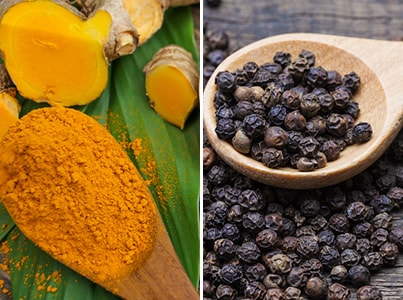
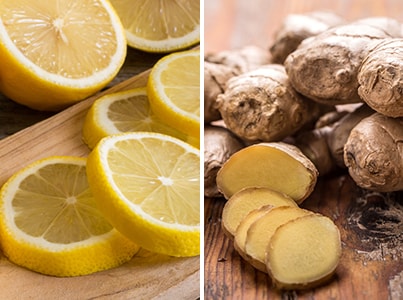
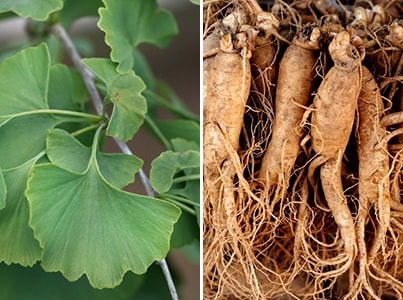
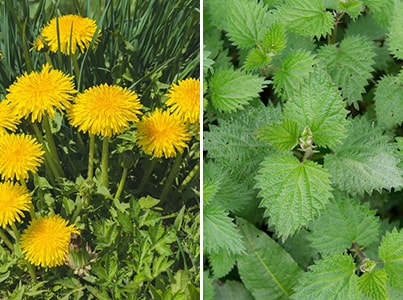
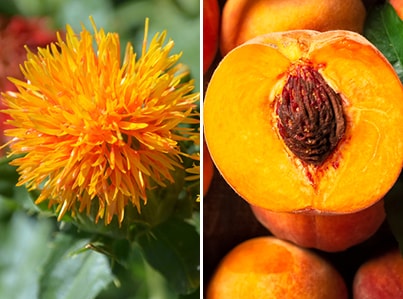
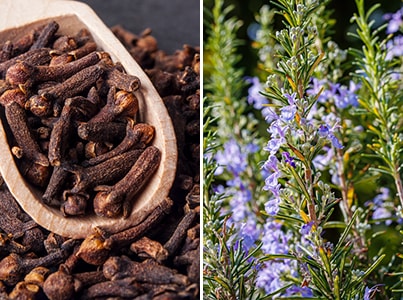
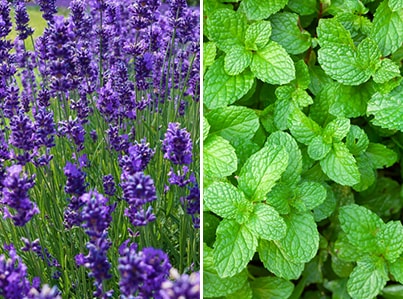
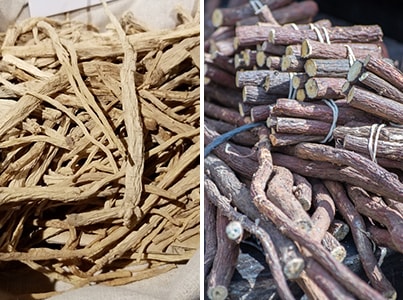
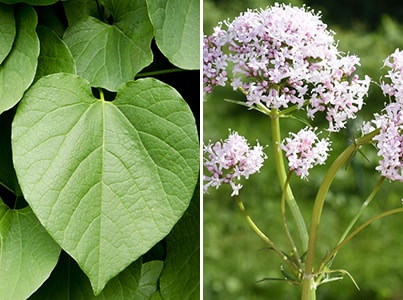
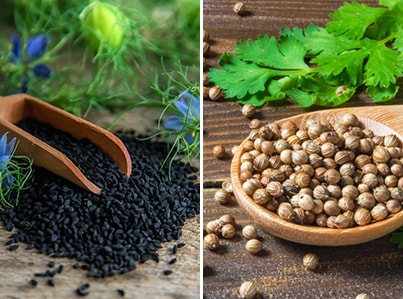
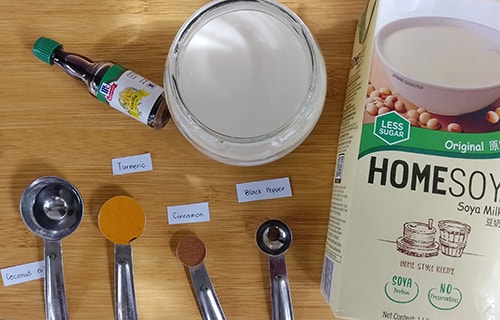
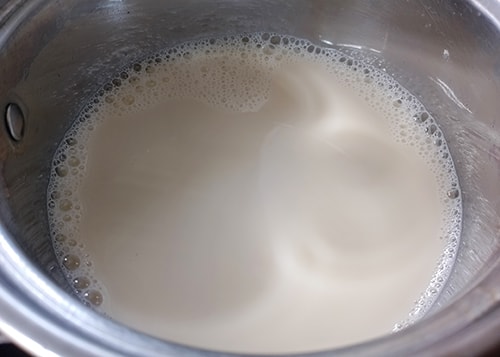
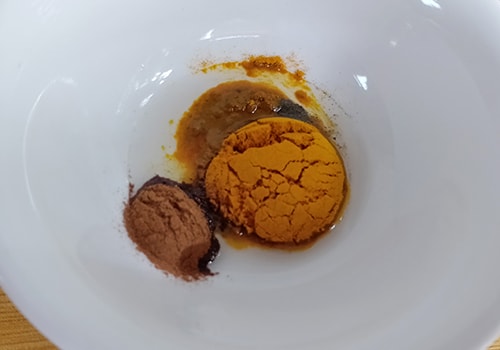
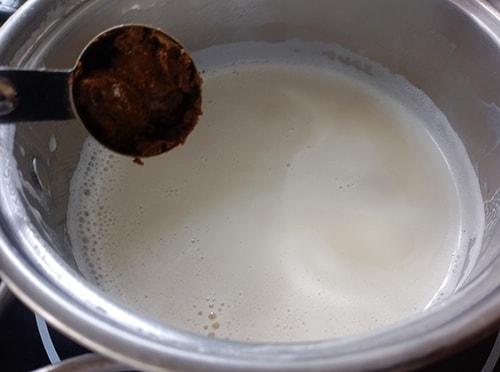
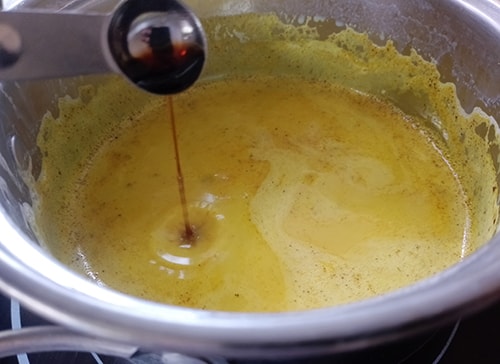
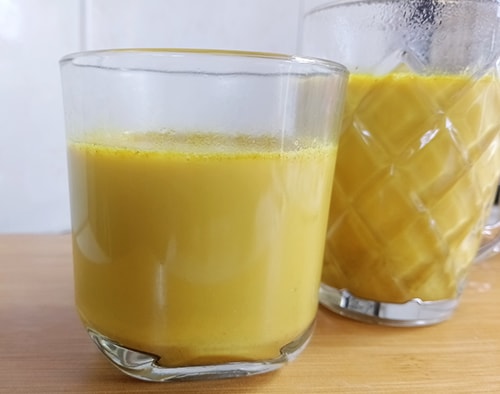
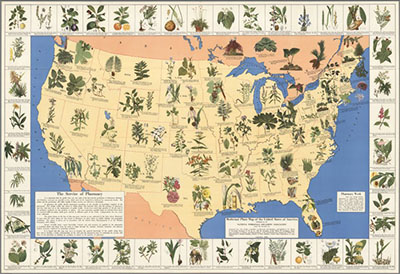
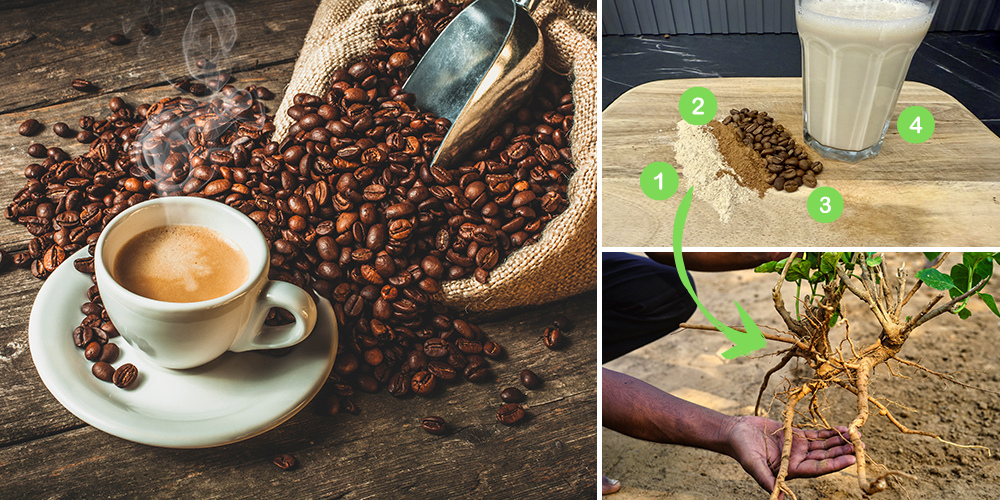
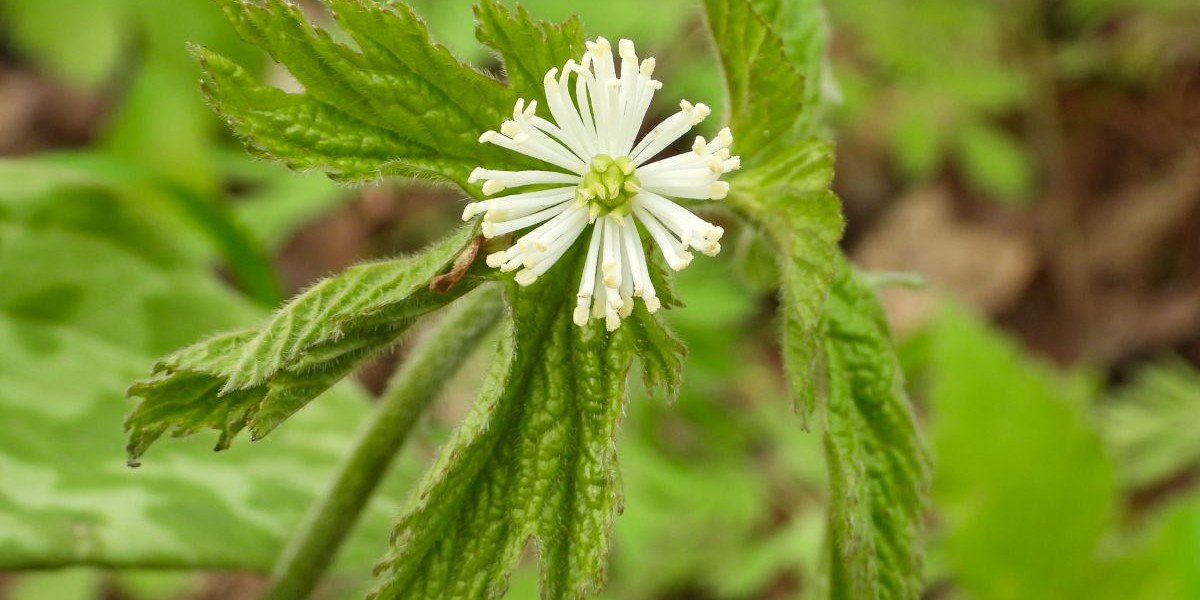
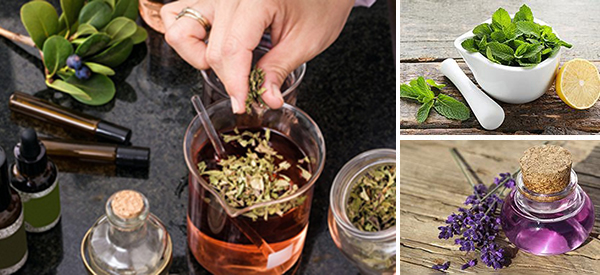
Wonderful information, thank you. I will share it
Love these suggestions, thanks so much! Going 5o make the ginger lemon tea right now, golden milk tonight & adding cloves to my rosemary/horsetail hair tonic!!
Re: the choice of milk for the turmeric drink – I would suggest looking into the toxicity of soy products without traditional/ancient fermentation process… it takes TWO YEARS to ferment a soy bean where it is safely consumable for humans!!
I would love to make some of these teas, but no quantity is given as to how much of each herb to use? The Ginger and lemon states boil the ginger, but how much? I would love a book that had all this great info along with precise amounts on how to prepare